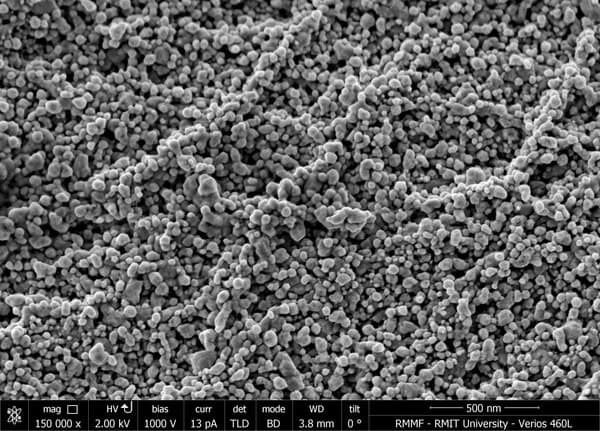New Method To Grow Nanostructures Disintegrate Organic Matter When Subjected To Sunlight
The day is near when washing powders will be transferred to the museum and magical clothes will rinse off the dirt simply by using sunlight. A group of researchers from RMIT University in Melbourne, Australia has engineered a special nanostructure which quickly diminishes organic molecules when it is subjected to the exposure of a light source, such as a bulb or sunlight.
Nanoengineered textiles are self-sufficient when it comes to washing of stains. Dr Rajesh Ramanathan claimed that their research product has immense applications in areas including catalysis-based industries such as agrochemicals, pharmaceuticals and natural products which can easily be commercialized, if necessary. These textiles possess a 3D heliophilic structure which uses absorbed light to degrade organic molecules. The team from the Ian Potter NanoBioSensing Facility and NanoBiotechnology Research Lab at RMIT used copper and silver based nanotubes.

Close-up of the nanostructures grown on cotton textiles by RMIT University researchers
When the nanostructure is exposed to light, an agitation in molecular level occurs which generates energized electrons which in turn removes the organic particles from it. In the lab, some of these textiles took only 6 minutes to get cleaned. Although, commercialisation hasn’t been done as yet, according to the team, it would take more time to completely get rid of washing machines and powders. The next goal of the team is to test the textiles with tomato sauce or similar substances. The complete research report is published in the Advanced Materials Interfaces Journal.
Source: #-Link-Snipped-#
Nanoengineered textiles are self-sufficient when it comes to washing of stains. Dr Rajesh Ramanathan claimed that their research product has immense applications in areas including catalysis-based industries such as agrochemicals, pharmaceuticals and natural products which can easily be commercialized, if necessary. These textiles possess a 3D heliophilic structure which uses absorbed light to degrade organic molecules. The team from the Ian Potter NanoBioSensing Facility and NanoBiotechnology Research Lab at RMIT used copper and silver based nanotubes.

Close-up of the nanostructures grown on cotton textiles by RMIT University researchers
When the nanostructure is exposed to light, an agitation in molecular level occurs which generates energized electrons which in turn removes the organic particles from it. In the lab, some of these textiles took only 6 minutes to get cleaned. Although, commercialisation hasn’t been done as yet, according to the team, it would take more time to completely get rid of washing machines and powders. The next goal of the team is to test the textiles with tomato sauce or similar substances. The complete research report is published in the Advanced Materials Interfaces Journal.
Source: #-Link-Snipped-#
0
